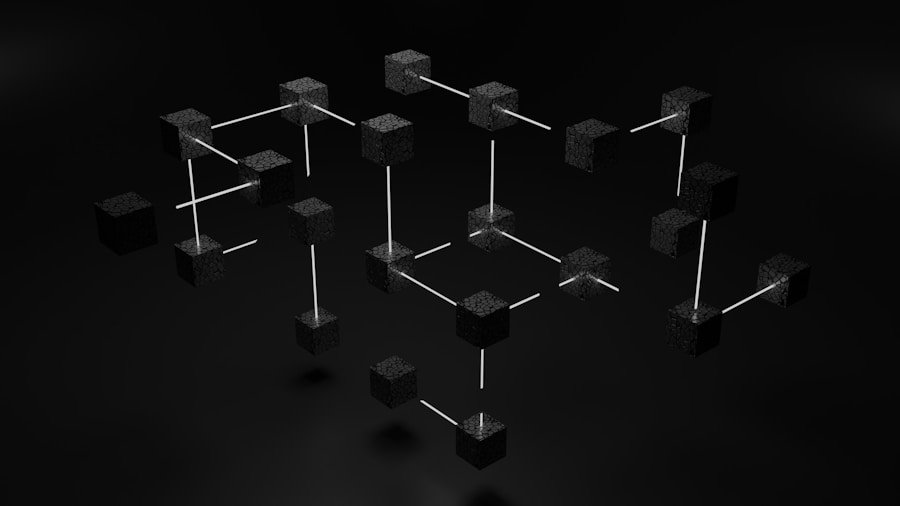Decentralised social media refers to a type of social media platform that operates without a central authority or control. Instead of being owned and operated by a single entity, decentralised social media platforms are built on a network of interconnected nodes, allowing users to interact directly with each other without the need for intermediaries. This decentralised approach to social media is often seen as a way to democratise the online space, giving users more control over their data and content.
Decentralised social media platforms are typically built on blockchain technology, which allows for secure and transparent transactions. This means that users can have greater confidence in the integrity of the platform, as well as the security of their personal information. Additionally, decentralised social media platforms often use peer-to-peer networking, which means that data is distributed across multiple nodes, making it more difficult for any single entity to control or manipulate the platform.
Empowering Users through Decentralisation
One of the key benefits of decentralised social media is the empowerment of users. By removing the need for a central authority, users have more control over their data and content. This means that they can choose who they share their information with, and have greater confidence in the security and privacy of their personal data. Additionally, decentralised social media platforms often give users more control over the content they see, allowing them to curate their own feeds and avoid algorithmic manipulation.
Decentralised social media also empowers users by allowing them to monetise their content. On traditional social media platforms, the majority of advertising revenue goes to the platform itself, with little benefit to the content creators. However, on decentralised social media platforms, users can be rewarded directly for their contributions through mechanisms such as cryptocurrency or token rewards. This gives users a greater incentive to create high-quality content and engage with the platform, leading to a more vibrant and diverse online community.
Protecting Privacy in Decentralised Social Media
Privacy is a major concern for many users of traditional social media platforms, as these platforms often collect and monetise user data without their consent. Decentralised social media offers a solution to this problem by giving users more control over their personal information. Because data is distributed across multiple nodes, it is more difficult for any single entity to access or manipulate user data without their consent. Additionally, blockchain technology provides a secure and transparent way to store and transfer data, giving users greater confidence in the privacy and security of their information.
Another way that decentralised social media protects privacy is through the use of encryption and anonymity. Many decentralised social media platforms use encryption to secure user data, making it more difficult for third parties to access or intercept communications. Additionally, some platforms allow users to interact anonymously, giving them the freedom to express themselves without fear of retribution or surveillance. This focus on privacy and security is a key reason why many users are turning to decentralised social media as an alternative to traditional platforms.
The Role of Blockchain in Decentralised Social Media
Blockchain technology plays a central role in decentralised social media, providing the foundation for secure and transparent transactions. At its core, blockchain is a distributed ledger that records transactions across multiple nodes in a network. This means that data is stored in a way that is resistant to tampering or manipulation, making it an ideal solution for decentralised social media platforms. By using blockchain technology, decentralised social media platforms can ensure the integrity of user data and content, as well as provide a secure and transparent way to transfer value.
In addition to its role in securing transactions, blockchain technology also enables new forms of value exchange on decentralised social media platforms. Many platforms use cryptocurrency or tokens as a way to reward users for their contributions, such as creating content or engaging with the community. These digital assets are built on blockchain technology, allowing for secure and transparent transactions without the need for intermediaries. This gives users a greater incentive to participate in the platform, as well as providing a new way to monetise their contributions.
Advantages of Decentralised Social Media
Decentralised social media offers several advantages over traditional platforms, including greater user control, enhanced privacy and security, and new opportunities for value exchange. By removing the need for a central authority, users have more control over their data and content, allowing them to curate their own online experience. Additionally, decentralised social media platforms use encryption and blockchain technology to protect user privacy and security, giving users greater confidence in the integrity of the platform. Finally, decentralised social media offers new ways for users to be rewarded for their contributions through mechanisms such as cryptocurrency or token rewards.
Another advantage of decentralised social media is its potential to foster a more diverse and vibrant online community. By empowering users to create and share content without the need for intermediaries, decentralised social media platforms can give voice to underrepresented groups and perspectives. This can lead to a more inclusive and democratic online space, where a wider range of voices are heard and valued. Additionally, by using blockchain technology to enable new forms of value exchange, decentralised social media can provide new opportunities for users to monetise their contributions and engage with the platform.
Challenges and Limitations of Decentralised Social Media
While decentralised social media offers many advantages, it also faces several challenges and limitations. One of the main challenges is user adoption, as many people are still unfamiliar with decentralised platforms and may be hesitant to switch from traditional social media. Additionally, decentralised social media often requires technical knowledge to use effectively, which can be a barrier for some users. Another challenge is scalability, as many decentralised platforms struggle to handle large numbers of users and transactions without sacrificing performance or security.
Another limitation of decentralised social media is the potential for abuse and misinformation. Because these platforms often allow for greater anonymity and freedom of expression, they can be vulnerable to manipulation and exploitation by bad actors. Additionally, because there is no central authority to moderate content, decentralised social media platforms may struggle to address issues such as hate speech or harassment. Finally, there are concerns about the environmental impact of blockchain technology, as it requires significant computational power to operate.
The Future of Decentralised Social Media
Despite these challenges and limitations, the future of decentralised social media looks promising. As more people become aware of the advantages of decentralisation, there is growing interest in alternative platforms that offer greater user control and privacy. Additionally, as technology continues to advance, decentralised social media platforms are likely to become more user-friendly and scalable, making them accessible to a wider audience.
One potential future development for decentralised social media is the integration of artificial intelligence (AI) and machine learning. These technologies could be used to improve content moderation and address issues such as misinformation and abuse. Additionally, AI could be used to personalise user experiences and improve recommendation algorithms without sacrificing user privacy.
Another potential future development is the integration of decentralised social media with other emerging technologies such as virtual reality (VR) and augmented reality (AR). By combining these technologies, decentralised social media platforms could offer new ways for users to interact and share experiences in immersive virtual environments.
Overall, the future of decentralised social media holds great promise for empowering users, protecting privacy, and fostering a more diverse and vibrant online community. As technology continues to advance and user awareness grows, decentralised social media is likely to play an increasingly important role in shaping the future of online communication and interaction.








